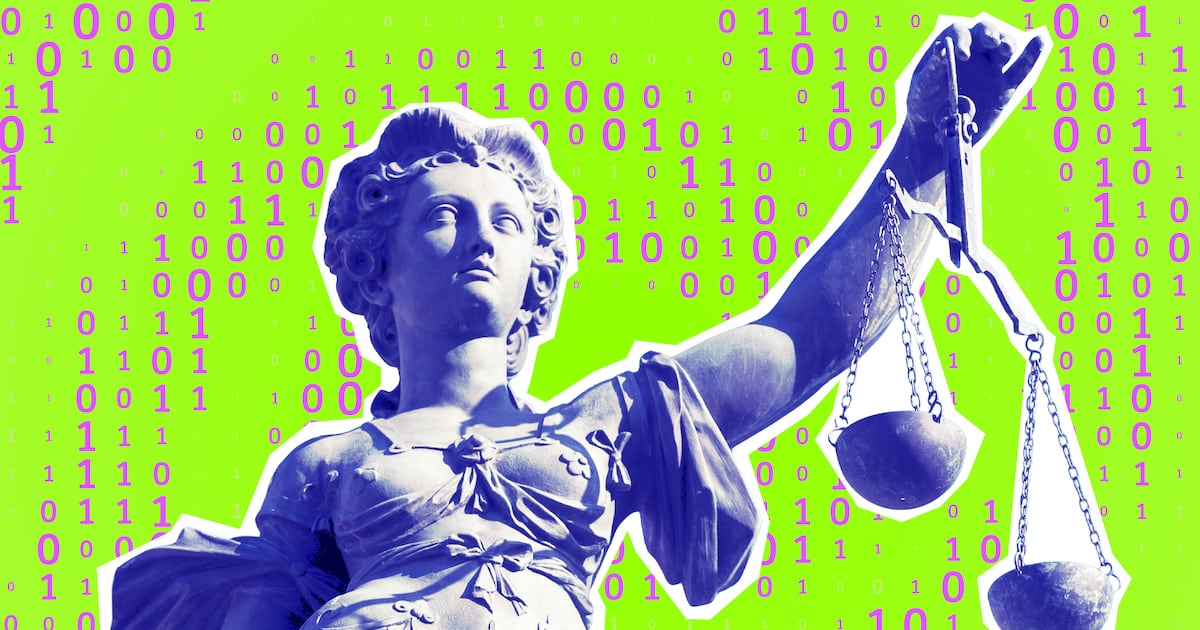- The Decentralised
- Posts
- Bot wars on trial 🤖
Bot wars on trial 🤖
The feds arrested two brothers for “attacking Ethereum.” As their trial rages in New York, a think tank argues the feds are the blockchain’s real assailants.
GM, Aleks here.
The crypto mantra “code is law” is facing its latest test in US courts.
MIT-educated brothers Anton and James Peraire-Bueno are in the fourth week of their criminal trial, accused of “attacking Ethereum” and stealing $25 million from three traders.
Now, crypto think tank Coin Center is sounding the alarm, calling their prosecution a “radical” attempt to “impose a novel and alien code of conduct” on Ethereum validators, the people who run the software that powers the $421 billion network.
If prosecutors succeed, it would “massively chill public participation in these innovative systems,” Coin Center wrote in a letter to the court on Friday.
A bit of background: The brothers have been charged with wire fraud, as well as conspiracy to commit wire fraud, launder money, and receive stolen property. If found guilty, they could spend decades in prison.
The alleged scheme took advantage of three traders’ MEV bots — Ethereum-based, automated trading programmes that scan the blockchain seeking profitable opportunities to front-run pending transactions.
Here’s how it worked, according to the indictment. First, the brothers created more than a dozen Ethereum validators. When one was selected to propose a new block to add to the network, the brothers pounced.
In short, they tricked the bots into buying $25 million in illiquid crypto, according to the indictment. The bots’ operators bought the crypto because they expected to be able to quickly sell it at a profit.
Instead, the brothers’ validator allegedly submitted an invalid signature to Ethereum. That resulted in a modest penalty — but it also revealed the contents of the aforementioned block, which contained the bots’ buy and sell orders.
The brothers were then able to “tamper” with the block, changing a buy order that had lured the bots into a sell order, according to the indictment. That effectively put $25 million in stablecoins and other cryptocurrencies into the brothers’ pockets, leaving the bots holding the illiquid — and valueless — crypto.
Finally, the re-ordered block was added to Ethereum, sealing the transaction on an immutable ledger.
“The defendants’ scheme calls the very integrity of the blockchain into question,” Damian Williams, the former US Attorney for the Southern District of New York, said in a statement when the brothers were arrested in May 2024.
Not so, argues Coin Center.
In fact, there was nothing “dishonest” about the brothers’ scheme — not by crypto standards, at least.
In a blockchain context, to be “honest” is to obey the rules built into the software.
“These rules are not rich, wooly, and subject to interpretation like social norms,” Coin Center wrote. “Key to understanding these norms is that dishonesty in the colloquial sense is expected, but cryptographic and economic tools are leveraged to discourage it or render it harmless.”
Moreover, MEV bots operate in a cutthroat arena where various actors compete to squeeze as much money as they can out of pending transactions. Pushing the rules’ limits to make money is expected, even encouraged. The “victims” were really just out-competed, Coin Center argues.
Jailing someone for winning in the MEV arena “wildly recalibrates the incentives for non-standard block validation,” the think tank adds, before launching into an impassioned conclusion:
“The genius of open blockchain systems lies in their ability to translate honesty into mathematics and sanction into code. When external authorities substitute that precision with ex-post expectations about fairness or intent, they do not reinforce the system—they destabilise it.”
The brothers are on trial at a federal courthouse in lower Manhattan. As of Monday, the defence was presenting its case, according to the indefatigable Matthew Russell Lee, of Inner City Press. Expect closing arguments and a verdict sometime in the next week or so.
Top DeFi stories of the week 🤖
Latest from DL Research
This week in DeFi governance ⚖️
Post of the week 💥
Decentralised perpetuals exchange Aster soared on Sunday after Binance founder Changpeng Zhao said he has purchased more than $2 million in the protocol’s token. Zhao also happens to run investment firm YZi Labs. Which happens to be an investor in Aster. Higher!
.
Owner of a grocery store walks into his own business and shouts that he is buying rotisserie chickens.
— Mr. Frog (@TheMisterFrog)
11:45 PM • Nov 2, 2025
Got a tip about DeFi? Reach out at [email protected]
DL News is an independent news organisation that provides original, in-depth reporting on the largely misunderstood world of cryptocurrency and decentralised finance. From original stories to investigations, our journalism is accurate, honest and responsible.
Forwarded by a friend? Subscribe here.










